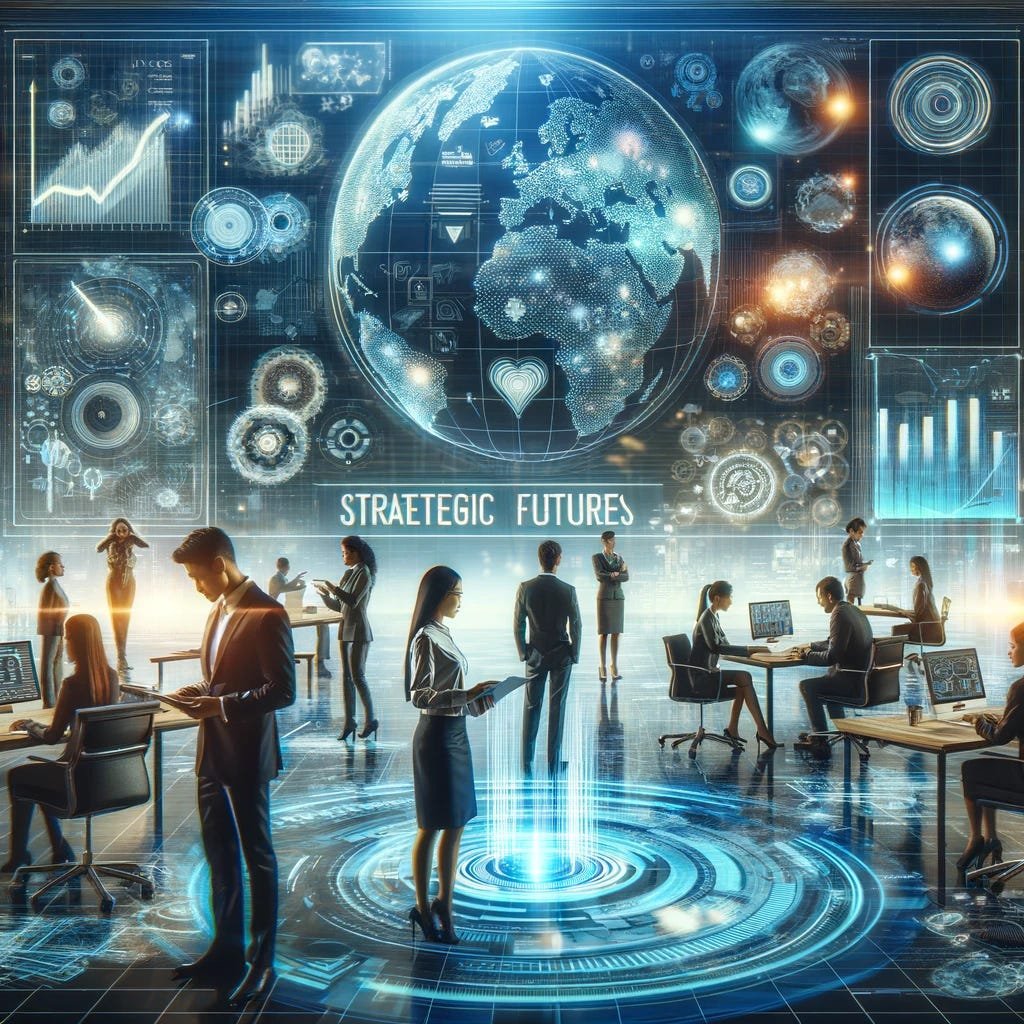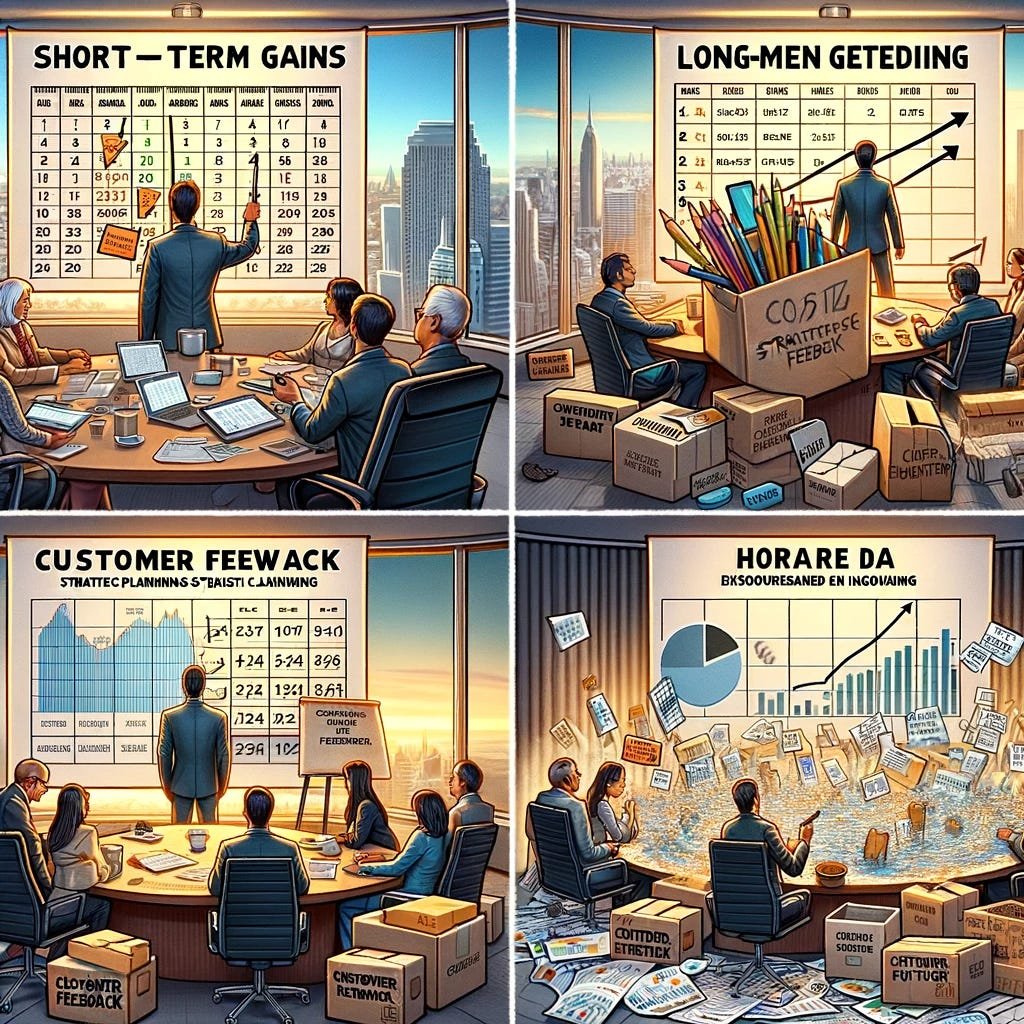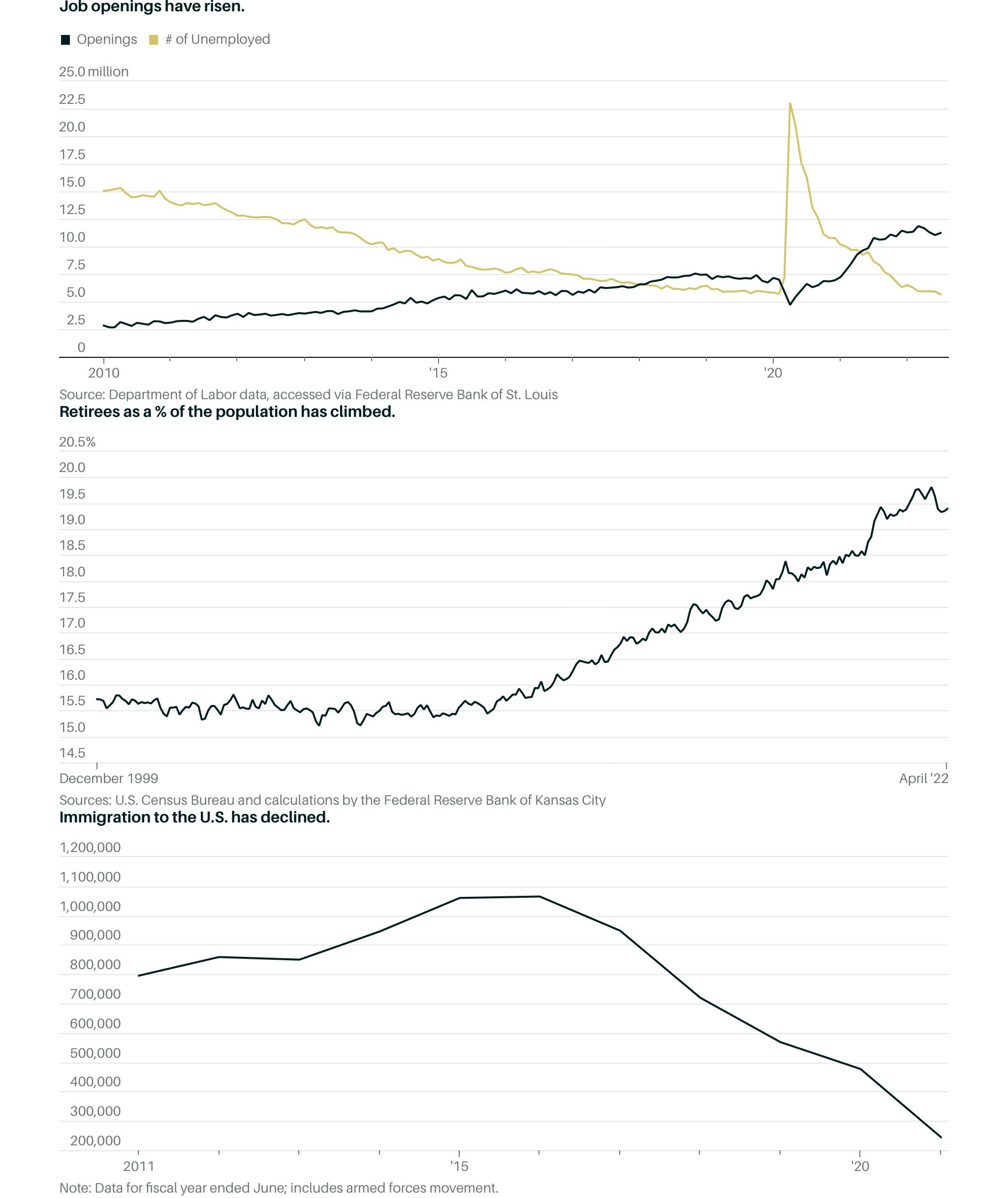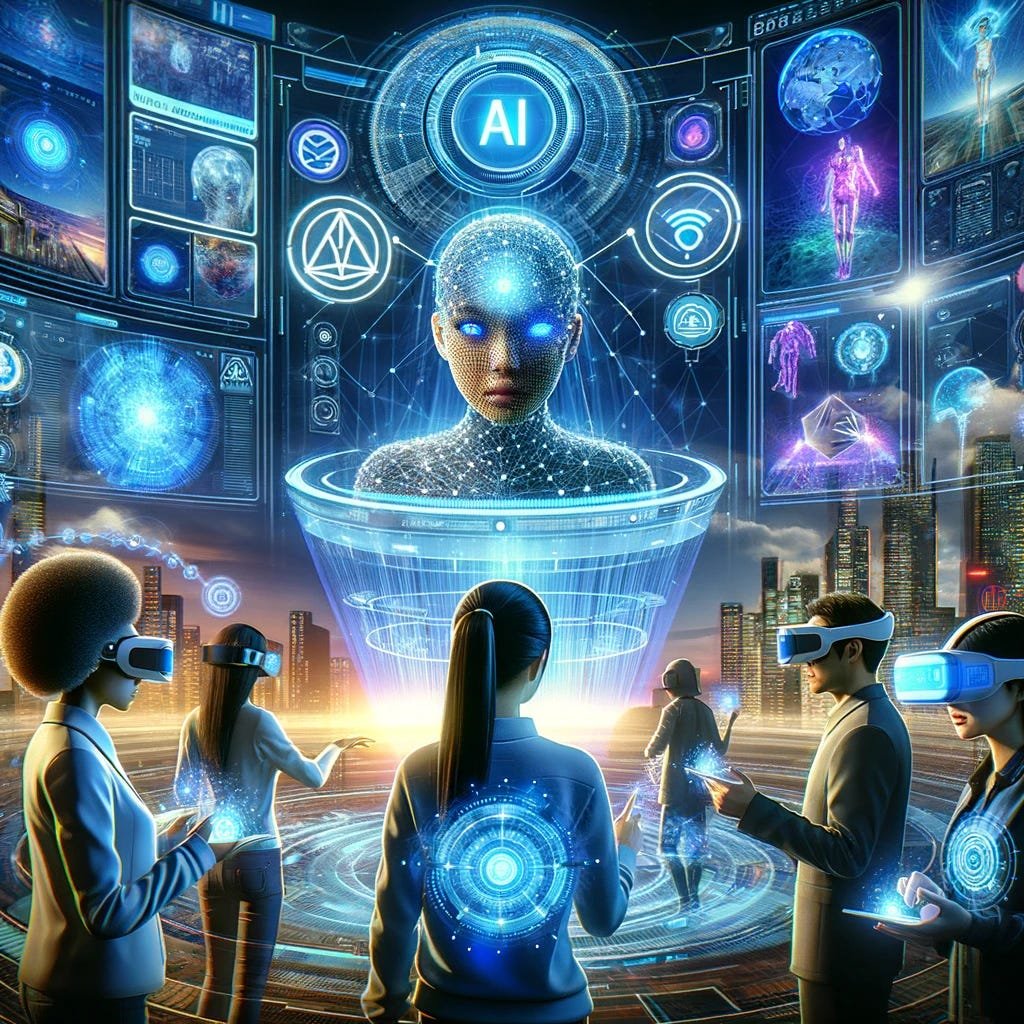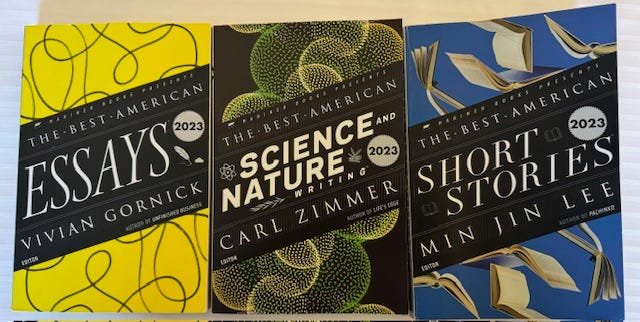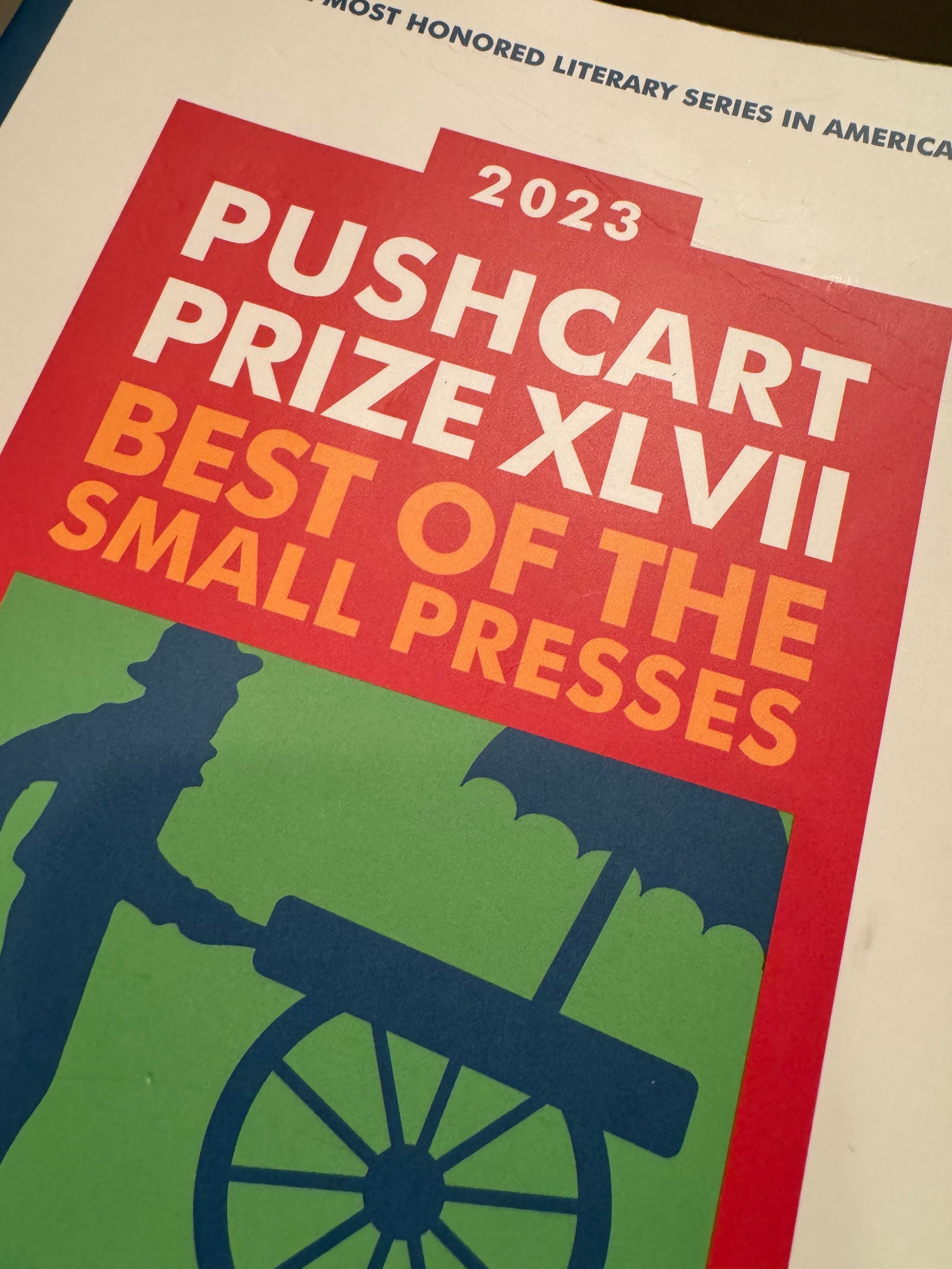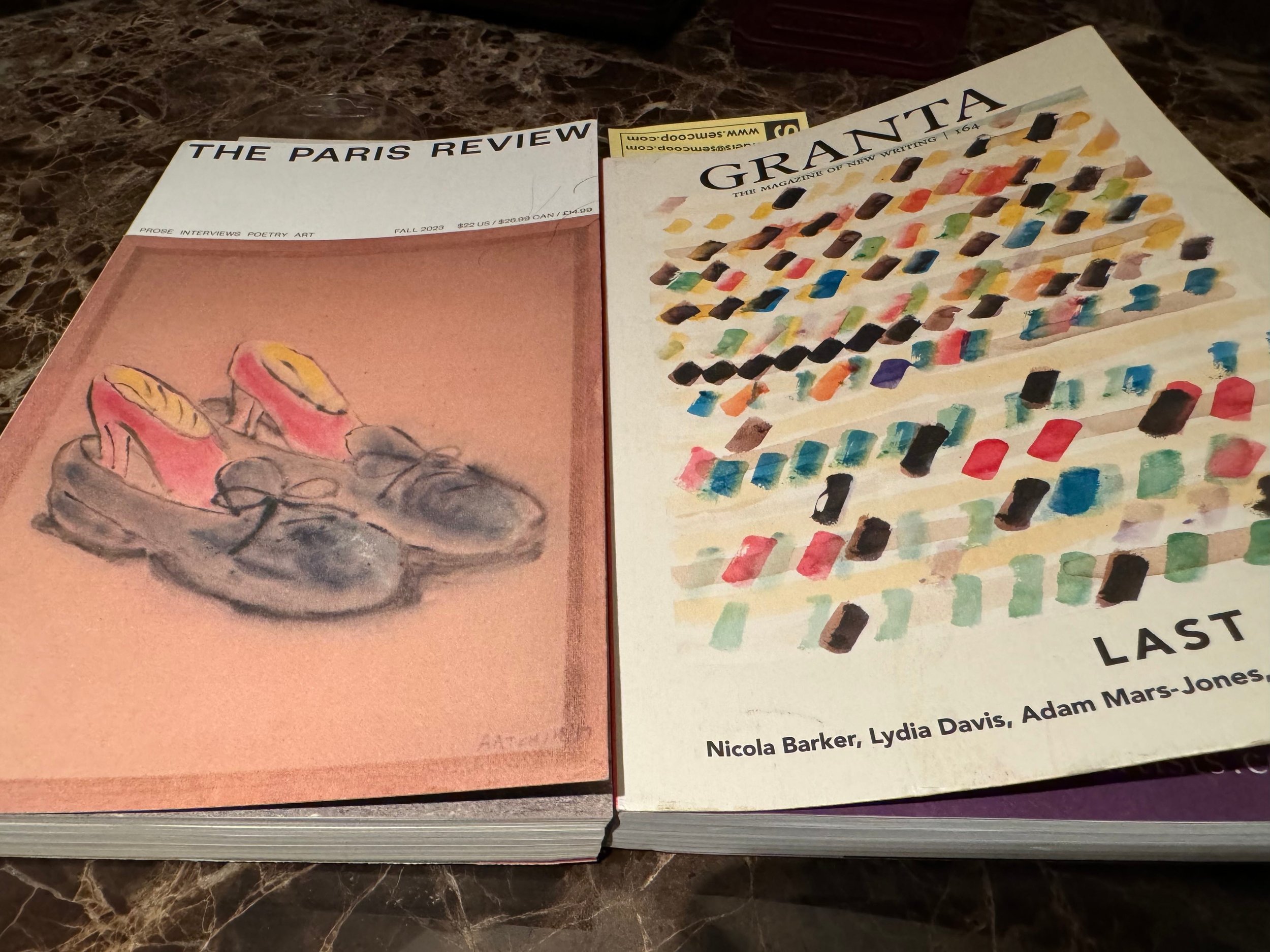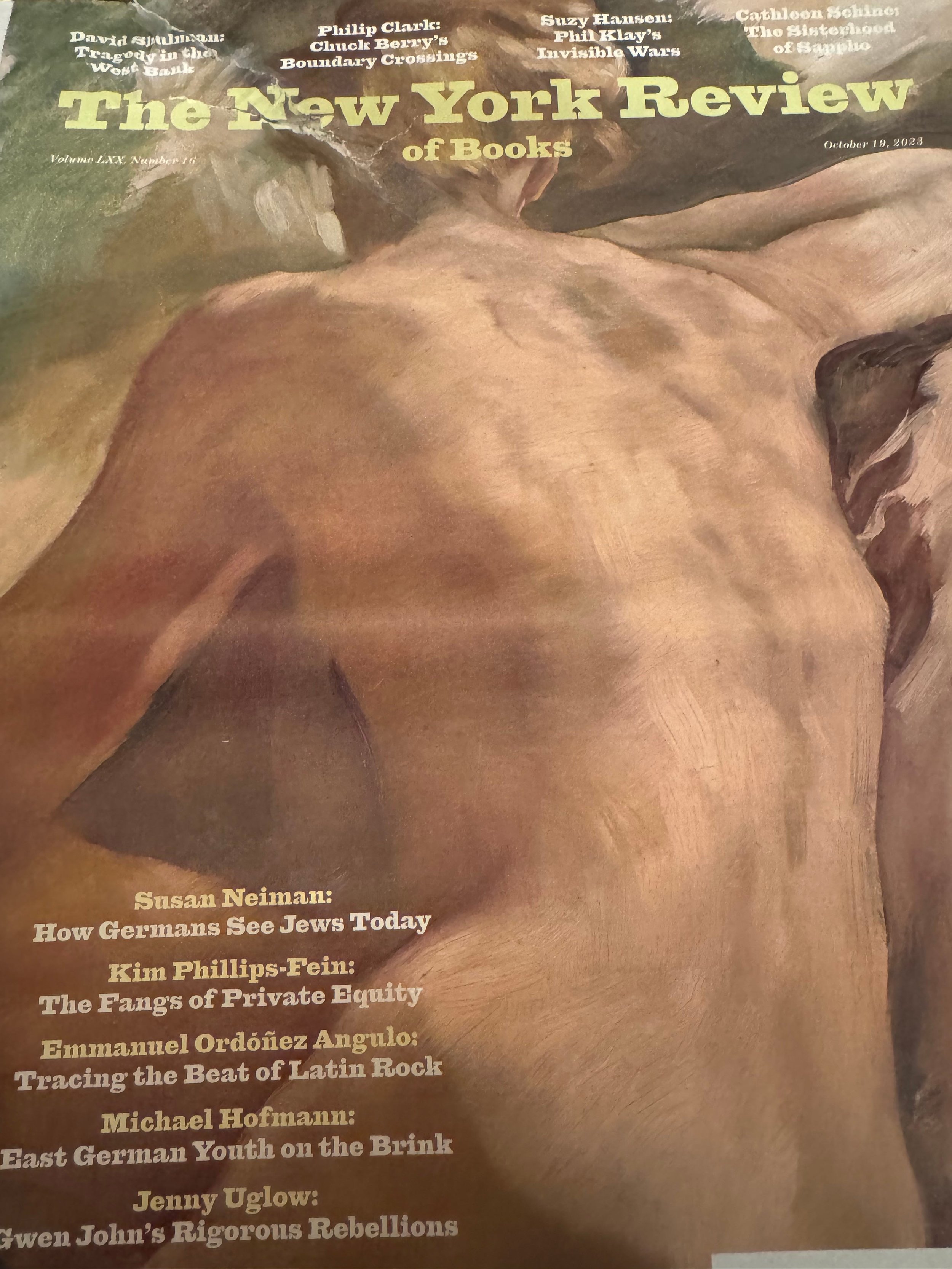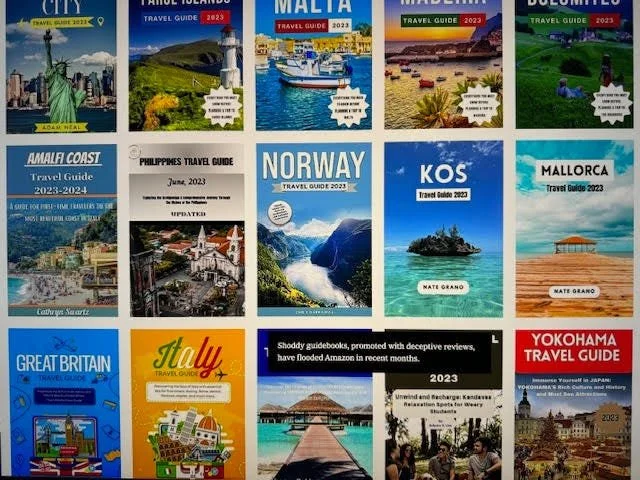Poetry.
“Prose: words in their best order; poetry: the best words in the best order.”
―Samuel Taylor Coleridge
“As it happens, I am still committed to the idea that the ability to think for one's self depends upon one's mastery of the language.”
―Joan Didion
Poetry is a form of “accelerated thinking”. Poems combine depth of feeling, clarity of thought and the power of imagery in a mystical combination that rises to another level of communication. They sit at the edge where reality and imagination interact.
Books of poetry are the books that are like the “axe for the frozen sea within us” which Franz Kafka believed we needed. And any of one of the poetry anthologies by Edward Hirsch (above) will open a world that will make you see your world differently.
A poem beats out time.
Poetry is a soul making activity.
It sacramentalizes experience. And it gives us courage to speak up so that:
“Where the voice that is in us makes a true response, where the voice that is great within us rises up”
And poems reminds us of the passing of time…
Time is an echo of an axe within a wood
The sunlight in the garden hardens and grows cold, we cannot cage the minute within its net of Gold
One of my favorite poems about the passing of time is called “Otherwise” by Jane Kenyon and reminds us to appreciate every day because one day it will be otherwise
Otherwise
I got out of bed
on two strong legs.
It might have been
otherwise. I ate
cereal, sweet
milk, ripe, flawless
peach. It might
have been otherwise.
I took the dog uphill
to the birch wood.All morning I did
the work I love.
At noon I lay down
with my mate. It might
have been otherwise.
We ate dinner together
at a table with silver
candlesticks. It might
have been otherwise.
I slept in a bed
in a room with paintings
on the walls, and
planned another day
just like this day.
But one day, I know,
it will be otherwise.
Whenever you believe you have someone figured out or wonder why you cannot figure yourself or why things are always changing these lines from Ars Poetica? by Czelaw Milosz might be of help:
“The purpose of poetry is to remind us how difficult it is to remain just one person, for our house is open, there are no keys in the doors, and invisible guests come in and out at will.”
Or Rabindranath Tagore’s Last Poems (#13)
Poems help us “see” differently.
Here are some lines by James Wright’s book “ The Branch will not Break” which all describe dusk in a midwest prairie farm. Each line is filled with a new way of seeing and whenever I am driving in the evenings outside of Chicago I sense things differently because of these lines. The sensing and seeing also helps me in my writing, my photography and in paying attention…
Silos creep away toward the West
The cow bells follow one another into the distances of the afternoon
The sun floats down, a small golden lemon dissolves in the water
The moon suddenly stands up in the darkness
The moon drops one or two feathers into the field. The dark wheat listens.
Of all the books of Poetry I have my favorite remains the first book I bought forty five years ago which you can see through its wear and tear and is the one I would recommend to anyone wanting to discover the beauty of Poetry. Start with Shakespeare, Wordsworth, Tennyson and Dylan Thomas . It was published first in 1952. Its author died in 1964. You can still get it on online and and in most book stores…
Four Strategic Mistakes.
What is strategy?
Strategy is Future Competitive Advantage.
What will the future look like? What will people need and expect? How will demographics, technology and other global shifts create new competitors or recharge current competitors and how will categories blur, blend and maybe even disappear?
Amidst these new expectations and changing competitive dynamics what advantage will your company offer? A differentiated or better product? A competitive moat of network effects, scale or some other dynamic? A better experience? Speed and value?
When companies get strategies wrong they tend to make on or more of the following four mistakes:
Mistake 1: Strategies that limit ones competitive set or define categories by the companies one currently competes with.
Many companies do not get strategy right primarily because they do not understand the exponential impact of technology and make the cardinal mistake of defining their category and competitive set looking backward versus forward.
One example among many is the auto category which defined the key drivers of their category in ways that did not see a Tesla or an Uber for years after they began to scale. How could software be as, if not more, important than hardware? How could electric be better than internal combustion engines? Do most people need the expenses of owning cars or do they just need on demand mobility?
Now just when electric appears to be the future companies like Toyota are striking back with a “both” versus “either gas or electric” strategy with hybrids that are starting to outsell pure electric options.
Look where there is transformation in a category and the instigator is usually from outside the category or a sudden renaissance from an incumbent that everybody believes has been left behind because they start to think differently like Toyota did or as Domino’s did in re-imagining pizza delivery.
This insular or present/ backward focussed bias happens for many reasons including the innovators dilemma of companies not wanting to disrupt themselves, leadership teams hoping that they will retire before the next tsunami hits and incentive plans built to maximize today despite the entire companies future being tomorrow.
A company’s greatest opportunities and threats usually come from outside its category.
If a strategy is based only on existing competitors and todays category definitions, it may be dead on arrival.
Mistake 2: Strategies built by extrapolating todays realities into tomorrow.
Many strategies were developed or continue to be developed assuming what has been true for over a decade will remain true.
a) Expanding and aging populations: When calculating “Total addressable market” or “rate of growth” most companies factored in growing populations.
Now the exact reverse is beginning to happen. Populations have started to decline in most advanced economies at a frightening rate.
It takes 2.1 children per mother to keep the population the same. The average across most developed countries is 1.7 and it is 1.1 in China. For the first time in the US the number has fallen below 2.1 and the population has declined this past year.
With low or no immigration, the US population according to the US census has peaked and only with high immigration will the country pass the 400 million mark. With no immigration the population will fall by one third in the next 50 years from 335 million to 226 million.
And populations are not just declining but aging fast. 10,000 people turn 65 every day in the US. By 2030 one of out of every five Americans or 20% of the US will be over 65 almost double the proportion from 2010.
With more people growing older and over half the wealth in most countries held by those over 60 every company should not just fixate on Gen Alpha and Gen Z but the other end of the age spectrum !
b) Scale is a competitive advantage: One of the long-standing tenets of business are the advantages of scale.
Scale has provided companies with many benefits from higher margins due to lower costs, to insulation from competition due to moats of marketing spending and widespread distribution.
Over the past decade however the benefits of scale have diminished and in some cases are proving to be a disadvantage:
Scale of Distribution: With direct-to-consumer marketing enabled by the Internet and platforms like Shopify, widespread retail distribution is no longer as effective an advantage. Clearly distribution matters but there are ways to route around the big stores by going direct and creating demand that forces buyers to stock your product.
Scale of Communication: New media behaviors by people particularly search and social are leading to communication channels where spending power is no longer a competitive edge as it was in television or print where marketers cornered key inventory at advantageous prices. Platforms like Facebook enable millions of small businesses with personalization and targeting capabilities to discover customers and be discovered. As content supported by advertising declines to less than a third from nearly two thirds the scale of spending while still being important is losing its potency.
Scale of Manufacturing: The “Everything as a service” platforms from Amazon Web Services to Foxconn allow smaller companies to gain the edges of scaled manufacturing, distribution, and technology without any of the legacy disadvantages of size.
Scale of People: From IBM to GE to Unilever to Walmart there are hundreds of thousands of employees and therefore ability to recruit and grow a range of talent and offer career advancement. Scale of people continue to be important to execute complex and large tasks but there are also new ways to re-aggregate talent. And a generation of talent wants to work in smaller and more entrepreneurial environments. In the post Covid world as we move to unbundled workplaces there will be far more ways to build teams both globally and in real time than ever before.
Legacy scale still matters in most industries and is critical in quite a few like semi-conductors. In fabricating advanced chips, a new fabrication plant can cost over 4 billion dollars and there is no way around scale. Today TSMC (Taiwan Semiconductor Manufacturing Company) dominates due to its scale.
However, while we can never underestimate legacy scale, there are new forms of scale that every smart company recognizes and is expanding into such as the scale of networks, scale of data, scale of influence and scale of talent and ideas.
c) Capital and talent are in abundant supply: As the world has moved away from a Zero Interest Rate Policy regime the past decade of easy access to capital is shredding so many strategies that were built on low to no cost of capital.
The bigger long term shift is the shift of power and options to talent and labor away from capital and management in many developed markets.
The first factor is simply demand and supply dynamics are changing as populations in these countries decline and age and immigration is limited as the chart below shows.
Then one has changing mindsets of talent whether it be Gen-Z questioning the current workplace or post Covid-19 mindsets where all our minds are like champagne corks in that they have swelled and no longer fit back into the world that management desperately hopes to will back.
And then there is a huge surge in talent looking to maximize their optionality with 66 percent of Gen-Z who have a full time job also having a side hustle or gig for additional compensation and building an off ramp into a new career. In the US 76 percent of Gen-Z want to work for themselves with the number in East Asia now higher than 80%?
This combination of low unemployment, new mindsets among white collar workers and a significant increase in Union power has stunned boards to such an extent that after AI, companies most frequently call out Unions and Talent as key areas of impact in earning calls.
The future vectors of change will not be built around the forces of the past
Mistake 3: Strategies focused on technology trends.
Every board loves a deck with Excel spreadsheets and Powerpoints panting excitedly on every page about the buzzword bingo of the moment.
It used to be personalization, platforms, data lakes and disruption.
Then it was Web3, Direct to Consumer, Metaverse, Blockchain.
Now it is AI here, AI there and AI everywhere!
While AI is expected to be even more transformational than the Web and the iPhone combined and will change the contours of business and life, it is highly unlikely AI itself will be a differentiator to a majority of companies.
In fact it is likely to be a commodity like data.
Both are like electricity.
No company will be able to compete without significant data and AI investments but it highly unlikely that it will be the data and the AI that will be the differentiator.
The future of AI in a company will be about how it is used not to replace but to turbocharge HI ( Human Inspiration). And CFO’s who believe AI will replace people and generate savings should also keep in mind that world class talent with AI and a clean sheet of paper might also replace many existing companies! (Thus leaving the cost cutting CFO without a job!)
In fact the real good CFO’s are investing, learning and starting to leverage AI to turbocharge growth versus only guillotining costs! (Without a doubt anything that a machine can do better will be done by a machine and so there will be savings and elimination of many tasks).
Technology including AI should be an input to strategy rather than writing strategies around technology !
Mistake 4 : Strategies that do not incorporate talent dynamics.
Unless talent in an organization is aligned and trained with the new strategy and therefore their behaviors are transformed, the company will not transform and the strategy will not be any real than the posters, t-shirt, and coffee cups that they are embossed on.
After the strategy document, the M&A plan, and the re-organization (all of which are important) nothing gets done unless the messy issue of people are dealt with and therefore talent dynamics should be a key part of strategy planning.
Specifically:
Why is the strategy good for the employees ? Why is it good for their personal future competitive advantage? ( Telling talent things like it is good for the company or if they do not change they will lose their jobs has zero motivational power or impact).
How will incentive plans be changed to align future behaviors with the new strategy? (To understand behavior of talent and management follow incentive plans not strategy)
What is the training and growth development plan? (Any strategy which does not invest in training and upgrading people to align with the new direction or strategy is purely delusion)
And this will remain true in the AI age where while every job will change and many white collar jobs (unlike in previous technology shifts where blue collar jobs were impacted) may be eradicated talent will still be key.
History has shown that very advance in technology places a premium on superior ability.
Today there are marvelous breakthroughs in AI technology from Open AI, Anthropic, Adobe, Google, Meta among the big firms and companies like Runway ML, Pika Art, Eleven Labs, and hundreds of others.
They are all awe inspiring and jaw dropping technologies that are advancing at rapid speed.
But remember the typewriter did not write “A Farewell to Arms” but Hemingway did.
If I had a word processor and ChatGPT and Hemingway has a pen he would write better.
If Hemingway also had ChatGPT the distance between us would be even wider.
Hemingway with a Substack would have scaled amazingly better than most.
It is not the technology; it is the talent.
Talent has scaled globally using technology like a lever.
So, we should worry less about how AI will replace talent but how we will leverage AI to scale ourselves, our teams and companies.
Growing, leading, attracting, retaining, and investing in talent is going to be a key strategic advantage.
Every human and individual and employee with the right support and placement can be highly productive and valuable.
Every strategy deck should have a significant section on how to turbocharge and build the strategy leveraging talent and not just focus on competitive dynamics, financial metrics and total addressable market and other data.
Companies grow and transform when talent grows and transforms.
Wide Spectrum Reading.
“The more that you read, the more things you will know. The more that you learn, the more places you'll go.”
― Dr. Seuss, I Can Read With My Eyes Shut!
“A reader lives a thousand lives before he dies. The man who never reads lives only one.”
― George R.R. Martin, A Dance with Dragon
“Books are the quietest and most constant of friends; they are the most accessible and wisest of counselors, and the most patient of teachers.”
― Charles W. Eliot
Life without reading and books would be a mistake.
In many ways the fastest way to learn, the best way to empathize with others, to grow and challenge oneself and to fuel ones thinking and ability to communicate is to read.
If our bodies are in part what we eat our minds and spirit is in large part what we read.
If innovation is connecting dots in new ways and ideas are fueled by insights then both of these are often turbocharged by reading.
But in a world with so much to do, filled with so many books and so little time how can we read deeply and widely?
I read forty to sixty books every year spanning fiction and non-fiction, graphic novels and children books, anthologies and literary periodicals, allocating an hour or two a day to the task.
This is in addition to the newspapers, magazines, email newsletters , blogs, and Substack’s that keep me informed but I have found they are not sufficient miss a to truly understand, grow and thrive.
Most people do not have the luxury of such time but if you have 20 to 25 minutes a day ( an hour and a half a week ) here is a recommendation of 7 resources that will provide you with the greatest range of world class writing in English from all over the globe every year. They are all available both in paper form which is my preference but also in digital form and a few as audible books.
I have read each of them for over two decades and they form the foundation of my yearly reading and are probably the best return on time spent every year.
The Best American Series.
The Best American Series consist of six annual anthologies guest edited by a different person each year. The three I recommend are the essay, short stories and science anthologies ( Was also a big fan of the travel writing anthology whose publication was discontinued in 2022 ).
The essays introduce you to distinct voices. This year’s foreword by the outgoing long time series editor on censorship and freedom of speech is in itself worth the price of the book.
If “art is the lie that tells the truth” than the short stories are compressed truth.
Science and Nature are far broader and deeper than AI and Climate change as the Science and Nature compilation reveals.
Each book contains about 20 pieces that take about 20 minutes each to read and are sourced from hundreds of periodicals. They span a diverse spectrum perspectives, and points of view. Each year at least a dozen of these sixty impact the way I think or live and you might find them similarly meaningful.
These are available globally in print, electronically and as audio books. The print editions are $17 in the US and less than 400 rupees ( $5 )each in India.
Pushcart Prize Anthologies
If you read only one book a year this is the one you should read.
It sources its material from smaller and off beat periodicals ( no New Yorker or Paris Review or Atlantic Magazines) and contains fiction, non-fiction, essays and poetry many of which will have the impact of being slapped by a cold fish on your face ( in a nice way).
The range of writers and voices are ones you do not often come across including the inner life of influencers, the drama of being a gamer and perspectives of people you never knew existed.
No gloss, no floss, no boss.
Just amazing writing filled with passion using and twisting language into lines that will transform you.
This is a big book running hundreds of pages and dipping in and out over the year is the best way to approach it.
The Paris Review and Granta.
The Paris Review and Granta are quarterly periodicals that are unique and very different from each other. While both publish fiction, non-fiction, photography and art they are complementary in many ways.
The Paris Review has a unique series called “ The Art of…” which are interviews carried out over months with two different artists each quarter on how they create their art. These include fiction writers, dramatists, poets, journalists, biographers, film makers and much more. Paris Review also has a number of free digital newsletters including a poem of the day.
Granta reads younger and more global and usually focusses on a theme or region. One quarter the entire series will be about brothers and sisters. The latest issue will be about Deutschland (Germany). Based on this theme one can read a spectrum of writing and look at photographs, collages and much more. Granta also has a tilt to travel and exploration relative to the Paris Review.
Both can be accessed digitally and/or in print. (No audible version).
You can learn more about the Paris Review here: https://www.theparisreview.org/
And about Granta here: https://granta.com/
The New York Review of Books.
The New York Review of Books is published 24 times a year and is really a magazine of ideas that use writers and books as as starting point to cover politics, economics, society, film, music and art.
An example the issue above has a wonderful essay by Natalie Anger called “ Not Milk?”on why we do not need milk and how milk is one of the most successful marketed products. There is a take down of private equity with data that will blow you away and two pieces “ How Germans See Jews Today” and “Tragedy on the West Bank” which provide great nuance, depth, perspective, humanity and wisdom on the tragedy unfolding in the Middle East.
These seven suggestions of four books and three annual subscriptions will set you back about 15 dollars a month ( or two beers during happy hour )and any one of these or all of them can make a great gift to yourself, your loved ones or your colleagues.
They are available globally and while published in the US or UK they source writers from all over the world. The limitations are that they focus primarily on the English language and that means the spectrum is not as wide or all encompassing as it could be but still it is a pretty wide aperture.
Feel free to add your favorite books or recommendations in the comments.
Career Lessons Revisited.
“The Pen and Inkwell” by Jonathan Lhoir.
Three years ago I published 12 Career Lessons which has remained among the three most read pieces. Today, three years later in workplace altered by Covid, anticipating the impact of AI, and roiled by new mindsets whether they be of generational differences, a rise of a multi-polar world or a breakdown of trust in many institutions around the world, I am republishing the piece which has stood the test of time and change with some additional learnings and refinements to reflect the past 1000 days.
"Dawn's Whispers: Graceful Hoopoe Silhouette at Sunrise" by Hermis Valiyandiyil
The Early Years.
1. Find the least sucky job you can: Early on in your career your initial assignments being those of the starter variety will be filled with a certain rote drudgery as you are amongst the lowest of the low and will be delegated work that no one wants to do themselves.
Do not delude yourself that in your early years that you are going to find “your purpose”, “your passion” or “your identity”. Nope. You have found yourself a job in a competitive landscape and you will be learning valuable lessons on showing up even if you do not feel like coming to work to do stuff “beneath you” , how to deal with a spectrum of characters and personalities, how to present and write, and what it feels like to being bossed around.
These elementary skills will turn out to be essential in that communication skills, empathy and discipline will carry you far and be your friends forever even if you constantly change industries or the world changes around you.
In person interaction is critical in the early years of a career for three key reasons: a) it is hard to learn how to enhance communication skills , build interpersonal skills and relationships or imbibe and adjust to to a culture remotely. These skills will be key for decades and they are easier and important to learn earlier. While it may be more expensive, less convenient and often difficult to commute and sit in a space which is not personalized the one era where in person work is key is early in ones career. Ask anyone who tried to onboard during Covid.
Early on a career my advice is to seize the opportunity that appears and build from it. Raise your hand to new opportunities. Do not say no to new experiences or difficult work because till you try it you will not know for yourself what you might learn or how you might fit.
2. The Trend is your Friend: If you are fortunate to be able to pick between jobs or find demand for your skills that allow you to choose between opportunities in a company, do not select the higher paying one but the one that is aligned with the future. Shakespeare wrote “we must take the current when it serves. Or lose our ventures” which in modern vernacular is “go with the flow my friend”. A majority of career success is to be aligned with trends and industries that are rising and even mediocre players can succeed in an unstoppable tide. Aligning with a trend and particularly aligning early is critical because not only will the force be with you, but your skills will be in demand as the area grows and if you have joined early you will be experienced and become well known in the field.
When joining a company investigate how it will be impacted in a world where AI will be embedded everywhere changing every job and new ways of communicating like AR/VR and XR create both new ways of communicating and break down barriers. How are the moats and bridges of the company and industry going to be impacted? A simple question to ask your prospect company is how they define their competitive set. If they define it with only existing competitors be careful since most industries are likely to be disrupted from outside their categories and this is an indication of management teams fixated on today or yesterday which will not work for you since most of your career will be spent in the future.
Another great question is to ask your interviewer is how they are learning or experimenting with AI or some new technology or what did they learn or build or create in the past quarter? You want to work for builders, growers, innovators, and learners and keep away from allocators, managers, delegators or monitors.
3.Plan and make decisions over a long horizon: Today people coming out of school and early in their careers will work for nearly 50 years. With life expectancies nearing the mid-eighties, social security being pushed back and health holding out till the seventies it is unlikely that you will be parked on a beach in your mid-fifties. Maybe in your mid-sixties or later. And even if you do not have to work for financial reasons you will do for reasons of meaning, connection and growth. Thus, do not make job or career decisions with three to five-month horizons but three to five-year horizons. Do not switch jobs just because of money unless you are under extreme financial stress. Try to give each company or assignment or adventure at least three years and if it is an industry or company at least five. Your decision making will be better, your skills will mature, and you will take daily and weekly gyrations in perspective.
4. Even the best jobs are only good seventy percent of the time: If you have a great job you will find yourself questioning three days out of ten what you are doing, why you are doing it and if you are any good. The reasons for this are three-fold. First, do recognize that you are being paid for what you do and the more you are paid the harder the job is and the problems and troubles you must deal with. Often the challenges or the situations or the people you have to deal with require you to steel yourself with increased resolve. Second, if you have a great job it is one that is growing you and sometimes throws you challenges that require you to build new muscles and do new things. Learning is never easy and if you are growing there will be days that the pain will feel more like a signal that you dislike your job rather than you are building new expertise. The best jobs have flow which is a combination of competence and challenge and sometimes the challenge can be quite daunting. Finally, we are all living in a time of great change, chaos and velocity which is filled with uncertainty. The most relevant and most transformative industries are in the eye of the storm and this can make a day at work feel like a day in the high-speed spin cycle of a laundry machine. And with today’s health, economic and social challenges, one often longs for a pause or rewind button.
5. Compete against yourself rather than with others: The trick is not to try to better than everyone, which is neither possible nor attainable for long or with everybody who is doing the grading. Rather it is to be better every day than you were yesterday. Perpetual improvement by learning from those you admire and respect or expertise you appreciate is not only fulfilling but one that you can control free of petty politics or pissing of people that you will need to work with. Oddly, it is more competitive than external competition because you can win externally often via bamboozling and sleight of hand, but you cannot really fool yourself. Get better because in it there is reward.
The goal is growth. Growth in your skills both mental and emotional. A little better every day or week compounds like interest to amazing returns particularly in the back half of your career. Build the ability to make decisions, to understand and empathize with others, to remain resilient and find ways to resurrect after a bad interlude at work. Bad stuff happens to everyone. The key is how to turn it into fuel to bounce back. Learn self-repair. Practice resurrection.
One key to growth is to spend at least an hour a day learning. If you do not have the time you are accepting obsolescence. You must find the time and with the exception of sleep and time with family and possibly exercise it is the most important investment in your life. Look around you and you will find the best in the world remain the best in the world by constantly upgrading themselves regardless of how busy or pressured they are.
Today there is even less excuse not to learn. You can access the very same AI tools as the worlds biggest firms by paying about 50 dollars a month ( GPT-4, Runway ML, Mid-Journey, Eleven Labs or their equivalents), get access to the best minds and training for free on You-Tube, Substack or podcast platforms like Spotify. The obstacles to enhancement are no longer physical or financial and if you do not seize them do remember others are…
6. Plan your career as if you were a company of one.
Think of yourself as a better paid Uber driver with benefits if you work for a company. If your expertise is needed at that time or in a particular market and location, and your collaboration and ability to work in teams is highly rated you will be in demand. If not, as companies manage and monitor costs and increasingly find ways to plug into resources all the time everywhere you will find yourself parked permanently.
The world we will be living in will be one that is driven by cloud computing, 5g speeds, AI machine learning and the death of distance is both enabling opportunities but also raising competition.
Think of the Hollywood model where expertise comes together on tv or movie projects and then the people disband and move on. Very few people work at a Studio. Most people work in teams where they bring their skill whether it be casting, directing, catering or make up etc. The future of business will be similar as companies begin re-aggregating expertise around projects versus having hordes of generalists or people hanging around for a project. McKinsey and Bain have done this for years.
I am not suggesting that everyone will be a freelancer going from gig to gig but if you build your career with the mindset of continually honing expertise, working well with other people in teams and being flexible you will succeed in your company of tens of thousands versus thinking of yourself as a cog in big machine waiting for someone to care for or build your career.
Most importantly you are the Human Resources Head of your company of one. Human Resources and Talent teams at companies including the one you work for are very important and essential to both the companies and to you BUT it is YOU and not THEY who are responsible for your career. They may be guides and resources to help you drive your career forward but you must take the wheel and steer. It is up to you with input from others to understand the map of the future terrain of the workplace and what upgrades to your driving skills or car(eer) you need and then find ways to navigate and fund what you need.
"Paper Nautilus Rider" by Renee Capozzola
The Middle Decades.
7. Who you work for is critical so choose your boss well: Once you get past the first decade of your career and you have learnt essential skills including how to keep learning, built an early reputation and if lucky aligned with a growing trend, the key to success is to find and hold on to the right boss.
Over the next decade or two, who you work for will be the determining factor in your success more than anything else you do. The middle years are really about being given new opportunities to learn and grow and linking with someone who is both growing themselves and is mentoring your own growth. A successful boss increases their remit and thus makes new opportunities for you, but also ensures that they have your back while being very upfront and straightforward with you face to face. They challenge you but cover for you when necessary. Find one or more of these and hold on tight. It makes all the difference and every successful leader has been fortunate to have found people who mentored, challenged and looked after them.
Today when more people work by themselves or in small companies or move around every three of four years these mentors may be found outside ones companies including ex Clients, former bosses or other mentors. Build a kitchen cabinet or a personal board because often we ourselves are so inside ourselves that we may not see things clearly or get too high or too low on ourselves.
8. Find Fit: In your middle career you should begin to specialize. You now know what you enjoy and are passionate about. You also know where you have comparative advantage. And you can see where there are growing and declining opportunities. Continuously adapt your job and find ways to start doing more and more things at the intersection of passion, comparative advantage and market demand. Today, more than ever before it is experts who love their jobs that are happiest and successful. Stop thinking that everyone can or should be a CEO. And for a lot of people the CEO job makes zero sense. Stop doing and pursuing things just because other people think they are cool jobs. Stop living in other peoples’ minds and start living in your own life. It is only then that autonomy, purpose and mastery come together, and you fit your role and your role fits you. Pursuing the highest rungs, the largest paycheck and the most external acclaim may lead you to follow the wrong star home. So many people price themselves out of their dreams and fail to recognize that Plan B was the real plan.
And sometimes it is important to stick to plan A especially if it is off the beaten path. If someone decides to work as a doctor or an engineer or a big firm they are rarely told to have a plan B. But if someone wants to be a writer, artist, creator, entrepreneur they are told to have a plan B. Plan A’s often are the best plans and if you can avoid having a cost structure that forces you to a Plan B stick to Plan A as long as you can.
The key is to maximize your options not your possessions.
9. Build your Brand: As you get to the last third of your career it is very crucial to enter it with a stellar reputation. As Jeff Bezos said a brand is what they say about you when you are not in the room. In addition to being generous and working with integrity which are key to being a successful brand it is important to be well positioned niche (what are you world class at or what is your special expertise?), have a distinct and clear voice (who are you and what do you stand for) and have a story (why should people believe you). Here is an exercise on how to build a personal brand
Your resume is not what is on your hard drive or LinkedIn. Rather, in large part it is your web presence, particularly the first page that people see on Google when they search for you or today the answer a Chatbot provides when you ask …Who is X? Go right now and check out the responses when you put your name into a chatbot or into Google. Go look at news. Go look at pictures. Go look at videos. This is you as the future becomes more distributed and digital.
To help create a better presence think of being active on some combination of Threads, X, Instagram, TikTok or LinkedIn. Develop a website (using Square Space or some other service) think of writing a blog on some passion or hobby or even start a newsletter. Consider now of using some GPT tools to create a GPTYou. ( stay tuned for one coming from me in the next few weeks)
"The Sad Poncho" by XJ Toh.
The Later Years.
10. Unlearn. Transform. Re-Invent: Three decades plus into work still leave a decade or two of career ahead and this is where things can get really dangerous or fulfilling.
If you have been successful you might be getting set up for a fall because —without you knowing it —the Industry you grew up in is being transformed and there are new technologies and approaches that make what you learned obsolete and just when you think you have arrived you have to unlearn what made you successful.
Which is why has to start learning and changing and making mistakes that you long thought you no longer have to do since you are a leader and not a rookie. You are too cool and too senior to actually make a fool of yourself but if you do not want to become as irrelevant as you fear privately you will have to change. Now all this talk about “change is good “that you have been stating to your teams has to be applied to yourself and you begin to realize that change actually sucks since you have to learn and trip and re-grow.
The really successful folks in the last third of the career have become students and learners again. If they have built a brand and have worked with integrity and helped others along the way, a swarm of people come to help them adjust. They reverse mentor, form a trampoline of trust and ensure that you do not fail since they recall the days you helped them. Sooner or later you will sow the seeds you planted and Karma is real.
For many folks the later years within a firm or outside it are often the best since they have all the mastery and fewer and fewer of the constraints. At this stage the best folks become artists. Think of late Monet with his Water Lilies which are a play on light and water that only a master could achieve or Beethoven’s late String Quartets or anything from a later Picasso.
11. Exits are as important as Entrances in Career Management: Many career books focus on impactful beginnings. There is a “first 100-day” mindset. There are many perspectives on how to fit into and make your mark into the new organization you are joining. But, there is not enough emphasis on recognizing that in multi-decade career there will be many exits. Some forced upon us (hopefully few to none) and some initiated by us. The exits at the end of a good run are particularly fraught.
A few years ago, a very successful person said “Every career has a midnight hour. The smart people leave at five to twelve”. But few do. People overstay their welcome and the end is “icky”. These endings sour the culture and tarnish an otherwise great run. The trick is to leave when they still are eager to have you around and your skills are sharp as ever.
Try not to cut ties with the companies you work for but to untie gently or when possible find to remain connected with different threads. As populations age and decline, the opportunity to leave while remaining connected will grow more prevalent.
12. Build a portfolio career and start giving back aggressively: Anyone successful in addition to working hard and playing the long game has been helped immensely by other people and have been blessed with luck. They have been given chances and now is the time to give those chances back.
During the last decade keeping in mind that you need to exit on your terms, it is time to build a portfolio career that expands from a job to one that includes a job, consulting, advising and giving back. Sooner or later the job will end but meaningful and purposeful work will continue. Successful older people end up being consultants’ part of the time and serve in advisory roles on boards or as mentors and they start teaching and helping non- profits. The folks who have ended their jobs most gracefully began these alternate streams during their last decade at work by volunteering, by teaching classes by mentoring and advising younger folks. This way they have a new road ahead when their full-time job ends and because they do, they move on gracefully into a new phase.
To access all my writing on Careers look at section 10 ( Managing Careers) here: https://rishadtobaccowala.com/100
AI and the Future of Writing… and much more…
Is writing old school?
Are books in secular decline in a world of You Tube and Tik-Tok?
Is there even a future for writers when AI is rapidly ingesting and constantly improving on all that has been written and can generate not just books from words but also create stunning images and incredible video?
Will authors disappear like the scribes who inscribed on tablets and the scroll copiers of the past?
Josh Bernoff is known to many for his role at Forrester where he was a Senior Vice President, spending 20 years analyzing technology and business. Prior to Forrester, Josh spent 14 years in start-up companies. Josh has a mathematics degree from The Pennsylvania State University and has studied mathematics in the Ph.D. program at MIT.
For nearly a decade Josh has focussed on writing. He has authored, co-authored or ghost written 8 books. Josh now works closely with nonfiction authors as an advisor, coach, editor, or ghostwriter collaborating on more than 50 nonfiction books.
As a mathematician and a person deeply familiar with technology and its impact on marketing and business who is also now deeply learned about the world of books and writing, Josh joined me (another mathematician with some marketing experience who is writing his second book) to discuss AI and the future of creativity and much more. We discuss how human intelligence and artificial intelligence will impact each other.
It is a conversation relevant to all individuals even if they are not interested in writing or creativity or technology since the world of AI is going to impact every job and industry and our discussion spans everything from how to leverage and ignite human inspiration in this new age to why it is key to be paranoid early and much more.
You can listen to the less than 40 minute conversation ( no ads, no promotions, tightly edited to maximize insights per minute) on any podcast platform or click below to hear it on Spotify or Apple (end of post). A few points from our discussion is the focus of this weeks post.
Will AI replace writers?
AI will replace many writers.
The hack writers.
It will not replace writers who have wit which is some combination of insight, humor, emotion and surprise who focus on communing and connecting with human minds and emotions.
In fact, the best writers today use AI as an input to power, expand and challenge themselves in ways that improve their writing and expand their thinking. AI expands the palette and opens new horizons rather than eliminate and shrink the future.
This is because writing is about feeling and connection and not just words and information.
As long as writing addresses human issues of identity, journey, conflict, searching for self and growth versus just being about sharing data correctly spelled and edited there will be a role for writers and writing.
Creativity is not just about connecting the dots but connecting dots in new ways with a unique voice and some combination of forward thinking perspectives, provocations, and points of view.
Right now GPT-4 (I used the upgraded Chat GPT) seems to agree in part with Josh and my perspective. (Notice it believes we will not COMPLETELY be replaced but some replacement is indeed expected.)
Rishad Tobaccowala to GPT 4 :When will AI replace writers?
GPT 4: The notion of AI replacing writers entirely is a complex and speculative topic. As of now, and likely for the foreseeable future, AI is not poised to completely replace human writers for several reasons:
Creativity and Originality: AI excels at processing and generating content based on existing data, but it lacks the ability to truly create something original and unique that stems from personal human experiences, emotions, and perspectives.
Emotional Depth and Nuance: While AI can mimic certain styles and emotional tones, it doesn't actually experience emotions and therefore cannot fully replicate the depth and subtlety of human emotional expression in writing.
Cultural and Contextual Sensitivity: Human writers understand their cultural context and can adapt their writing to be sensitive to societal norms, subtle language nuances, and regional idioms. AI, though improving, often struggles with these aspects.
Moral and Ethical Judgment: Writing often involves making nuanced moral and ethical judgments. AI does not possess the intrinsic moral compass or the understanding of complex ethical considerations that humans do.
Audience Engagement: Human writers can engage with their audience, understand feedback, and adapt their writing in ways that are personally relatable. AI lacks this level of interactive and empathetic understanding.
Creative Collaboration and Interpretation: Writers often collaborate with others, drawing on shared ideas and interpreting feedback. AI does not have the capability for this type of creative and interpretive interaction.
While AI will continue to become a more powerful tool for assisting writers in tasks like research, language correction, generating ideas, or even drafting content, it's unlikely to replace the unique creative and emotional aspects that human writers bring. The future will likely see a collaboration between AI and human creativity, rather than a replacement.
(As I just collaborated with AI to write the section above and create the image of the scroll writer and modern tablet at the top of the post and robot and the lady later in the post).
Human curation and direct relationships between writers and their readers are key to the future of many authors.
Hundreds of thousands of books on Amazon are now fake books written by AI with authors names similar or identical to other authors. All the books in the image above are among tens of thousands if not hundreds of thousands of AI generated books.
From the New York Times article that found thousands of fake books in just the travel section:
“The books are the result of a swirling mix of modern tools: A.I. apps that can produce text and fake portraits; websites with a seemingly endless array of stock photos and graphics; self-publishing platforms — like Amazon’s Kindle Direct Publishing — with few guardrails against the use of A.I.; and the ability to solicit, purchase and post phony online reviews, which runs counter to Amazon’s policies and may soon face increased regulation from the Federal Trade Commission.
The use of these tools in tandem has allowed the books to rise near the top of Amazon search results and sometimes garner Amazon endorsements such as “#1 Travel Guide on Alaska.”
In a gushing Niagara of content created by AI which is optimized using data to create and non transparent algorithms to distribute, real people are likely to turn to analog humans to help them distill and curate a little stream of engaging content they may find tasteful.
The future of discovery and curation might increasingly be human BUT also it will be key for many writers to have a direct relationship with their readers ( Just as all sorts of businesses and marketers today do not want to be near crap and want to build a direct relationship with their customers vs renting access from platforms)
Josh discusses how Authors are not being helped by Amazon and others middlemen and it will key for creators to have a direct relationship and ownership. All the content and the email list of people who publish on Substack like this newsletter for instance is owned by the creator and can be moved anywhere.
Be paranoid early and learn how to work with AI.
Josh warns us all not to be comfortable and keep learning as he learned Social Media in his 40’s to co-author Groundswell and how he continues today to learn about AI.
We should never believe we are too senior or too old for the gusts of change not to impact us in the next few months or that this can be delegated away to other folks or just be handled only by getting consultants to write a action plan.
The new technologies are not just like Photoshop and other tech but is likely to be more fundamental and existential.
Josh discusses why the recent settled strike by writers and actors focused so much on A and why though AI might not replace many jobs it will impact and change nearly every white collar job.
It is essential that everyone today embrace ( learn and use AI tools), adapt ( understand how their job and company processes will need to change) and complement (determine how AI and Human Inspiration can augment each other )
Here is how to remain relevant in an AI age.
And do listen to entire conversation between Josh and me for much more below (or above)




